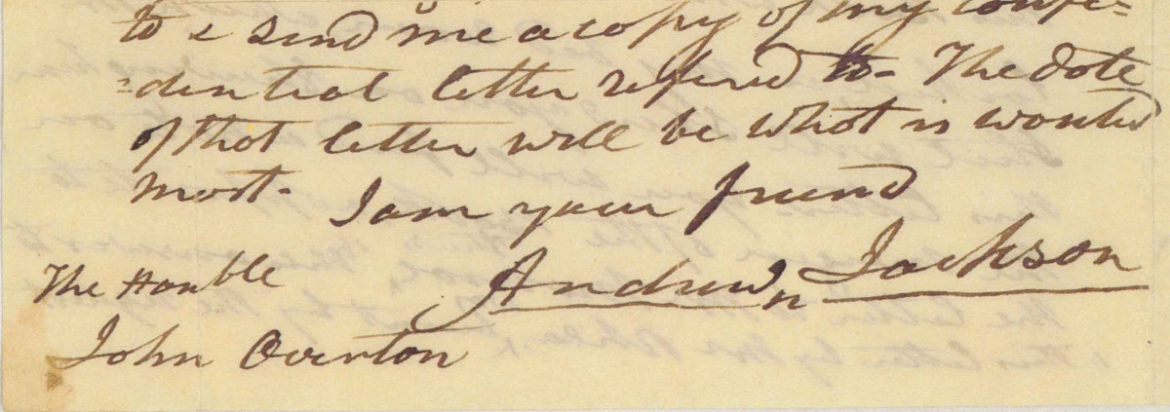A woman with a dubious reputation. Presidential cabinet members at each other’s throats. A president with a conspiracy theory.
It’s not a fictional story of political intrigue. It’s real-life drama—detailed through the correspondence chronicled in the ninth volume of The Papers of Andrew Jackson, recently published by the University of Tennessee Press.
The latest tome, which focuses on 1831, was compiled by Daniel Feller, editor and director of the Jackson Papers and a professor of history at UT. Associate editors were Laura-Eve Moss and Thomas Coens.
The Papers of Andrew Jackson project is hosted by the UT History Department and sustained by two federal agencies, the National Endowment for the Humanities and the National Historical Publications and Records Commission. Last year the project won a $300,000 NEH grant—its largest ever—to complete this volume.
Since 1971, the project has sought to collect and publish Jackson’s entire extant literary record. After an extended worldwide search, the project has obtained photocopies of every known and available Jackson document, including letters he wrote and received, official and military papers, drafts, memoranda, legal papers, and financial records—some 100,000 items in all.
A selection of documents from the collection can be seen at the Papers of Andrew Jackson website.

